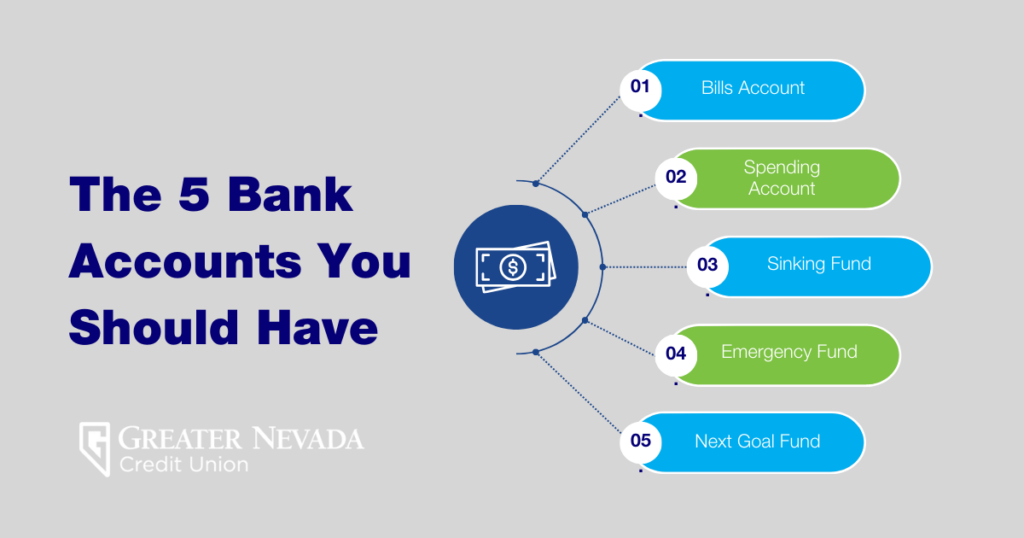The 5 Essential Bank Accounts You Should Have

Achieving financial success involves more than just earning money – it’s about managing it wisely. One key aspect of financial management is organizing your funds effectively through strategic bank accounts. Let’s explore the five essential bank accounts that can help you stay financially organized and on the path to achieving your money goals.

1. Bills Account 💳: Keeping Recurring Expenses in Check
The first step towards financial organization is creating a dedicated bills account. By setting up direct deposit or automatic transfer, you can effortlessly cover recurring expenses such as rent, utilities, subscription services like Netflix, and more. Bid farewell to late payments and the stress that often accompanies them. With a bills account, you gain control over your fixed expenses, ensuring that your financial obligations are met on time, every time.
2. Spending Account 💸: Managing Daily Expenses with Ease
For your day-to-day expenditures, a spending account is a must. Use it to track and manage expenses related to groceries, gas, Amazon splurges, and dining out. This account helps you stay on top of your budget without the unnecessary stress of overspending. By segregating your daily expenses, you gain a clear understanding of your spending patterns and can make informed decisions about where to cut back or save.
Bonus tip: use a Cash Back Checking account and earn money on your purchases!
3. Sinking Fund 💵: Preparing for the Future
Life is full of surprises, and not all of them come with a warning. A sinking fund is your proactive approach to preparing for the unexpected. Save money for holidays, unexpected maintenance costs, and those miscellaneous expenses that have a tendency to pop up when you least expect them. Building a sinking fund allows you to handle unforeseen expenses without derailing your overall financial plan.
Bonus tip: find a savings account with a high interest rate so that your money earns more money. (Just starting out? Check out GNCU’s I Can Save account.)
4. Emergency Fund 🚨: Your Safety Net in Times of Need
Every financial plan needs a safety net, and that’s where the emergency fund comes in. This easily accessible account acts as a financial cushion for unexpected emergencies, providing peace of mind when you need it most. Quick transfers from your emergency fund can be a lifesaver, allowing you to navigate unexpected expenses without resorting to high-interest loans or dipping into your long-term savings.
Bonus tip: for GNCU checking members, use your Share Savings account and transfer money instantly when needed.
5. Next Goal Fund 🌟: Dream Big and Save Strategically
Achieving financial freedom isn’t just about meeting obligations; it’s also about building towards your dreams. The next goal fund is your tool for dreaming big and saving strategically. Whether it’s a dream vacation, a major purchase, or a life milestone, this account helps you allocate funds specifically for your next big adventure. By setting aside money for your long term goals, you’re taking active steps towards turning your aspirations into reality.
Bonus tip: try looking outside your day-to-day financial institution, so the account is out-of-sight and out-of-mind while you save.
Financial freedom is within reach when you have the right accounts in place. By managing your money like a pro through these five essential bank accounts – bills account, spending account, sinking fund, emergency fund, and next goal fund – you gain control over your finances and set the stage for long-term success. Let’s make those money goals a reality together! 💪💵💯✨

